From Science Fiction to Reality: 10 Extraordinary Artificial Intelligence Examples
The Journey of Artificial Intelligence
When I delve into the world of technology and innovation, it’s impossible not to be fascinated by the meteoric rise of artificial intelligence (AI). The journey of AI is a compelling story of how a concept once confined to the realms of science fiction has become a reality that’s reshaping our world. In this part of the article, I’ll trace the history of AI and how it evolved from an abstract idea to reality.
Tracing the History of AI
The concept of artificial intelligence has its roots in antiquity, with stories and myths from different cultures featuring non-human entities capable of thinking and acting like humans. However, the formal journey of AI as we know it today began in the mid-20th century.
During the 1950s, scientists started exploring the idea of creating an artificial brain. The Dartmouth Conference in 1956 is widely recognized as the birthplace of AI as a field of study. During this conference, the term “artificial intelligence” was coined and its objective defined as making a machine behave in ways that would be called intelligent if a human did so.
The subsequent decades saw AI move from a purely theoretical concept to a technology with practical applications. The 1990s and early 2000s witnessed AI becoming an essential part of industries such as finance, healthcare, and gaming. For an in-depth look at AI’s development over the years, check our article on artificial intelligence definition.
AI: From Science Fiction to Reality
Today, AI is no longer a futuristic concept confined to science fiction novels or films. It’s a reality that’s transforming our everyday lives and revolutionizing industries.
From voice-activated virtual assistants such as Siri and Alexa to sophisticated recommendation algorithms used by Netflix and Amazon, AI is integral to many services that we use daily. In the business world, AI is being leveraged for strategic growth and competitive advantage. Whether it’s automating routine tasks, extracting insights from big data, or powering innovative customer service solutions, AI is at the forefront of business transformation. You can explore more about this in our article on artificial intelligence in business.
AI’s journey from science fiction to reality is a testament to human ingenuity and the relentless pursuit of knowledge. As we continue to push the boundaries of what’s possible with AI, it’s exciting to imagine what the future holds. In the next section, I’ll explore some extraordinary artificial intelligence examples that showcase AI’s potential in action.
Understanding Artificial Intelligence
As we delve into the realm of artificial intelligence (AI), it’s essential to lay a solid foundation. So, let’s start with the basics.
What is AI?
AI, or artificial intelligence, is a field of computer science dedicated to creating systems capable of performing tasks that would normally require human intelligence. These tasks include learning, reasoning, problem-solving, perception, and language understanding.
In simpler terms, AI is the science of making machines smart. But what does this mean? It implies that machines are capable of learning from experience, adjusting to new inputs, and performing human-like tasks. They can do everything from recognizing speech to defeating the best human chess player, from learning to drive a car to interpreting complex data sets—things I find fascinating.
To further understand AI, explore our article on artificial intelligence definition.
The Different Types of AI
As AI has evolved, several types or categories of AI have emerged. Each type represents a different level of machine intelligence.
- Narrow AI: These are systems designed to perform specific tasks, such as voice recognition. They are AI systems that have been taught (or learned) how to carry out specific tasks without being explicitly programmed to do so. This ability to “learn” is achieved through machine learning.
- General AI: These are systems or devices capable of understanding, learning, and applying knowledge in a broad array of tasks at a level equal to or beyond a human. However, this type of AI exists largely in theory and science fiction, and we’re yet to witness it in reality.
- Superintelligent AI: This is a hypothetical scenario where AI surpasses human intelligence and is capable of outperforming humans in most economically valuable work. This form of AI, as with general AI, is purely speculative and a subject of science fiction and future predictions.
To comprehend AI’s role in various domains, you may want to look at artificial intelligence in gaming, artificial intelligence machine learning, artificial intelligence in business, or artificial intelligence in finance.
Understanding the different types of AI and their capabilities is a cornerstone in appreciating the extraordinary artificial intelligence examples we see today. It allows us to recognize the potential of AI and how it’s shaping our world, both today and in the future.
Extraordinary Examples of AI in Action
The world of artificial intelligence (AI) is filled with fascinating and transformative examples. Let’s explore ten areas where AI is making significant strides.
Smart Personal Assistants
One of the most ubiquitous artificial intelligence examples in our everyday lives is the smart personal assistant. From setting reminders to fetching news updates, these AI-powered assistants leverage natural language processing and machine learning to understand and respond to user commands.
Predictive Purchasing
In the sphere of e-commerce, AI is utilized to predict user purchasing behavior. By analyzing past purchases and browsing history, AI can suggest products that align with the user’s preferences, thereby personalizing the shopping experience and driving sales.
Fraud Detection
In the realm of finance, AI is instrumental in detecting fraudulent activities. Machine learning algorithms can analyze transactions in real-time to identify unusual patterns and flag potential fraud. For a deeper dive into AI in finance, check out our article on artificial intelligence in finance.
AI in Healthcare
AI’s impact on healthcare is profound. From predicting patient risks to assisting in diagnostics, AI is revolutionizing the way we approach healthcare. For instance, machine learning models can analyze medical images to detect anomalies, aiding early diagnosis of diseases.
Self-Driving Cars
Self-driving cars are an impressive example of AI in action. These autonomous vehicles rely on AI to navigate roads, detect obstacles, and make split-second decisions, all with minimal human intervention.
AI in Weather Prediction
AI plays a significant role in improving the accuracy of weather forecasting. Machine learning models can analyze vast amounts of climate data to predict weather patterns and natural disasters, aiding in disaster management and mitigation.
AI in Customer Service
AI-powered chatbots and virtual assistants are redefining customer service. By handling routine queries and providing instant responses, these AI solutions enhance customer experience and free up human agents to handle more complex inquiries.
AI in Content Creation
AI is making inroads into content creation as well. AI algorithms can generate news articles, social media posts, and even creative writing. They can also personalize content based on user preferences, enhancing engagement and retention.
AI in Manufacturing
AI is a game-changer in the manufacturing industry. From predictive maintenance of machinery to optimizing production processes, AI can increase efficiency, reduce downtime, and improve product quality.
AI in Education
Last but not least, AI is transforming education. Personalized learning systems can adapt to each student’s learning pace and style, providing customized content and feedback. Plus, AI can automate administrative tasks, giving educators more time to focus on teaching.
These are just a few examples of AI in action, but the possibilities are endless. As AI continues to evolve and mature, we can expect to see even more extraordinary applications that will fundamentally reshape our world. To learn more about the different types of AI and their applications, check out our article on artificial intelligence definition.
The Impact of AI on Society
As we’ve seen from the various artificial intelligence examples, the influence of AI has permeated nearly every sector of our lives. But what exactly does this mean for society as a whole? Let’s delve into the benefits AI brings and the challenges it poses.
The Benefits of AI
First and foremost, AI has the potential to increase efficiency and productivity. By automating repetitive tasks, AI frees up time for individuals and businesses to focus on more complex, higher-value tasks. For example, in the realm of customer service, AI-powered chatbots can handle routine inquiries, allowing human agents to devote their attention to more complicated issues.
AI also holds promise in its ability to analyze vast amounts of data quickly and accurately. This capability can lead to improved decision-making in sectors ranging from healthcare to finance. For instance, AI algorithms can analyze medical imaging faster and more accurately than humans, potentially leading to earlier disease detection.
Moreover, AI can provide personalized experiences. Whether it’s a recommendation engine suggesting products based on past purchases or a learning platform tailoring educational content to a student’s strengths and weaknesses, AI’s ability to adapt to individual needs can enhance user experiences across various domains.
The Challenges and Ethical Considerations of AI
Despite the numerous benefits of AI, it’s important to recognize the challenges and ethical considerations it brings. One of the most pressing concerns is the potential for job displacement. As AI becomes more capable, there’s a risk that automated systems could replace human workers in certain roles.
Additionally, there are concerns about privacy and data security. AI systems often require large amounts of data to function effectively. In the process of collecting and analyzing this data, there’s a risk that sensitive information could be misused or mishandled.
There are also ethical considerations to take into account. For instance, biases in AI algorithms can lead to unfair outcomes. If an AI system is trained on biased data, it can perpetuate and even amplify these biases in its decisions and recommendations.
Finally, there’s the question of accountability. When an AI system makes a decision, who is responsible if something goes wrong? As AI systems become more autonomous, determining accountability can become increasingly complex.
As we continue to embrace AI’s potential, it’s crucial to address these challenges and ethical considerations. By doing so, we can ensure that AI serves as a force for good, promoting societal progress while minimizing potential harm. For more insights on how AI is shaping our world, check out our articles on artificial intelligence in business and artificial intelligence in finance.
The Future of AI
After exploring numerous artificial intelligence examples, it’s clear that AI is set to play an even more integral role in our daily lives and the functioning of various industries. As we look towards the future, the potential of AI continues to be staggering.
The Growing Role of AI
In the coming years, I anticipate that AI will become more ubiquitous and sophisticated. Businesses will increasingly rely on AI for data analysis, decision-making, and operational efficiency. From personalized marketing campaigns to predictive maintenance in manufacturing, the applications of AI will continue to expand.
AI is also set to revolutionize industries such as healthcare, education, and finance. For instance, AI-powered diagnostic tools will enable faster and more accurate disease detection. In education, AI could offer personalized learning experiences tailored to each student’s needs. And in finance, AI could enhance risk assessment and fraud detection.
Moreover, AI will continue to transform our personal lives. Smart homes will become more intuitive with AI, learning our routines and preferences to automate various tasks. Even our interactions with technology will become more natural and seamless, thanks to advances in natural language processing and voice recognition.
For more insights into the role of AI in various sectors, you can check out our articles on artificial intelligence in business and artificial intelligence in finance.
Advancements on the Horizon
While it’s impossible to predict exactly what the future holds for AI, certain trends are worth watching.
One such trend is the integration of AI and machine learning. As these technologies converge, we can expect AI systems to become more adaptable and autonomous. They will be capable of learning from their interactions and improving their performance over time. To dive deeper into this topic, you can read our article on artificial intelligence machine learning.
Another exciting development is the rise of AI in gaming. With AI, games can become more immersive and dynamic. AI can create intelligent and unpredictable opponents, generate unique game scenarios, and even design entire games. For more on this, check out our article on artificial intelligence in gaming.
Despite the rapid progress in AI, it’s important to remember that we are still in the early stages of this technology’s evolution. With ongoing research and advancements, the potential applications of AI are virtually limitless. As we move forward, I believe that AI will continue to surprise and amaze us with its capabilities, just as it has done with the many extraordinary artificial intelligence examples we’ve already seen.



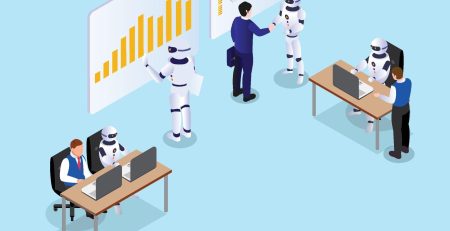
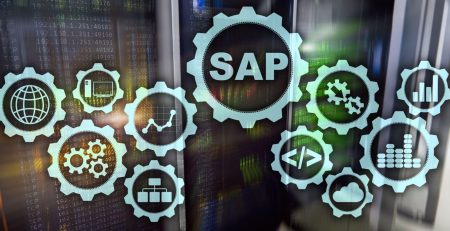
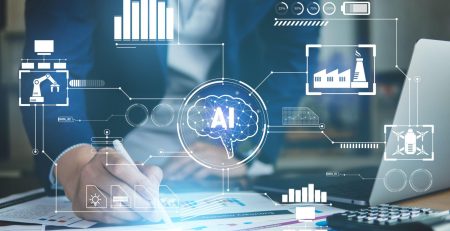
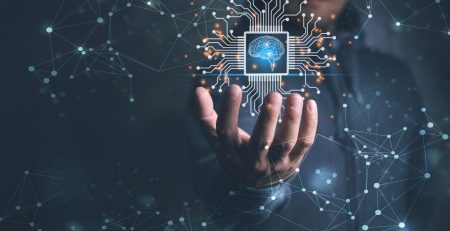
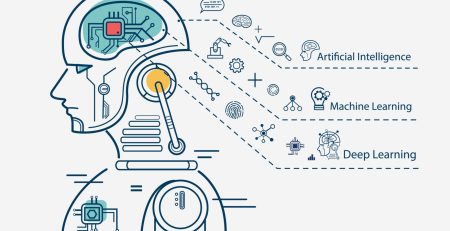

Comments (2)
[…] Artificial Intelligence, in its simplest form, refers to the simulation of human intelligence processes by machines, especially computer systems. This involves learning (the acquisition of information and rules for using the information), reasoning (using rules to reach approximate or definite conclusions), and self-correction. For a more in-depth look at AI, you can check out our article on artificial intelligence definition. […]
[…] The integration of artificial intelligence in gaming is continually evolving, unlocking new possibilities for enhanced gaming experiences. As AI technology continues to advance, we can expect even more sophisticated and immersive games in the future. For more information on the broader applications of AI, check out our articles on artificial intelligence definition, artificial intelligence machine learning, and artificial intelligence examples. […]